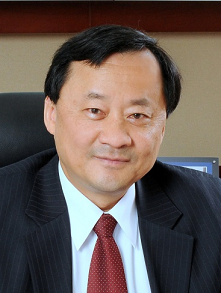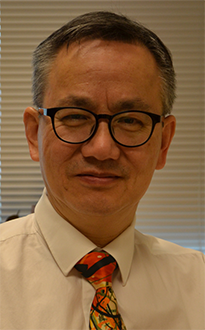Big Data is emerging as one of the hottest multi-disciplinary research fields in recent years. Big data innovations are transforming science, engineering, medicine, healthcare, education, finance, business, and ultimately society itself. In this presentation, we examine the key properties of big data (volume, velocity, variety, veracity, and value) and their relation to some applications in e-learning. To truly handle big data, new paradigm shifts will be necessary. Successful applications in big data will require in situ methods to automatically extracting new knowledge from big data, without requiring the data to be centrally collected and maintained. Traditional theory on algorithmic complexity may no longer hold, since the scale of the data may be too large to be stored or accessed. To address the potential of big data in scientific discovery, challenges on data complexity, computational complexity, and system complexity will need to be solved. We propose a new approach based on identifying kernels to harness the complexity of big data applications. Kernel data is a compact and manageable representation of the original data, with similar structure, data properties, or meta-properties. We illustrate these challenges and approaches by drawing on examples in various applications in e-learning, finance, and multimedia.
 Benjamin W. Wah is currently the Provost and Wei Lun Professor of Computer Science and Engineering of the Chinese University of Hong Kong,
as well as the Chair of the Research Grants Council of the University Grants Committee, Hong Kong, and the Franklin W. Woeltge Emeritus
Professor of Electrical and Computer Engineering, University of Illinois, Urbana-Champaign. Before then, he served as the Director of
the Advanced Digital Sciences Center in Singapore, as well as the Franklin W. Woeltge Professor of Electrical and Computer Engineering
and Professor of the Coordinated Science Laboratory of the University of Illinois, Urbana-Champaign, IL. He received his Ph.D.
degree in computer science from the University of California, Berkeley, CA, in 1979. He has received numerous awards for
his contributions, which include the IEEE CS Technical Achievement Award (1998), the IEEE Millennium Medal (2000),
the IEEE-CS W. Wallace-McDowell Award (2006), the Pan Wen-Yuan Outstanding Research Award (2006),
the IEEE-CS Richard E. Merwin Award (2007), the IEEE-CS Tsutomu Kanai Award (2009), the Distinguished Alumni Award in Computer Science
of the University of California, Berkeley (2011), and the Justice of Peace, Hong Kong (2018).
Wah's current research interests are in the areas of big data applications and multimedia design and processing
Benjamin W. Wah is currently the Provost and Wei Lun Professor of Computer Science and Engineering of the Chinese University of Hong Kong,
as well as the Chair of the Research Grants Council of the University Grants Committee, Hong Kong, and the Franklin W. Woeltge Emeritus
Professor of Electrical and Computer Engineering, University of Illinois, Urbana-Champaign. Before then, he served as the Director of
the Advanced Digital Sciences Center in Singapore, as well as the Franklin W. Woeltge Professor of Electrical and Computer Engineering
and Professor of the Coordinated Science Laboratory of the University of Illinois, Urbana-Champaign, IL. He received his Ph.D.
degree in computer science from the University of California, Berkeley, CA, in 1979. He has received numerous awards for
his contributions, which include the IEEE CS Technical Achievement Award (1998), the IEEE Millennium Medal (2000),
the IEEE-CS W. Wallace-McDowell Award (2006), the Pan Wen-Yuan Outstanding Research Award (2006),
the IEEE-CS Richard E. Merwin Award (2007), the IEEE-CS Tsutomu Kanai Award (2009), the Distinguished Alumni Award in Computer Science
of the University of California, Berkeley (2011), and the Justice of Peace, Hong Kong (2018).
Wah's current research interests are in the areas of big data applications and multimedia design and processing
Wah cofounded the IEEE Transactions on Knowledge and Data Engineering in 1988 and served as its Editor-in-Chief between 1993 and 1996. He currently serves as the Honorary Editor-in-Chief of Knowledge and Information Systems and is on the editorial boards of Information Sciences, International Journal on Artificial Intelligence Tools, Journal of VLSI Signal Processing, World Wide Web, and Journal of Computer Science and Technology. He has served the IEEE Computer Society in various capacities, including Vice President for Publications (1998 and 1999) and President (2001). He is a Fellow of the AAAS, ACM, and IEEE.
Computer Graphics is a computer science subject involving heavy mathematics and many classic graphics algorithms. Providing students hands-on learning experience via programming projects is essential but insufficient. In this talk, I will share my experience in teaching computer graphics by letting students build algorithm animation and demonstrations open source software. The open source demonstration software, called CGDemo, includes animation and interactive demonstration of various classic graphics algorithms and 3D mathematic transformations. Students first learn the algorithms by developing demonstration projects in Java, following a consistent demonstration framework, and meanwhile by learning and reusing software components built by other students. The gradually built open source project CGDemo has been helping all the subsequent students to learn complex graphics algorithms via intuitive animation and interactive demonstration. We report our recent evaluation of students’ experiences in learning computer graphics by using CGDemo. Over the years, this computer graphics course has evolved into a suite of learning resources, including a Springer textbook, a set of 37-session MOOC videos and the aforementioned CGDemo open source software.
 Kang Zhang is Professor and Director of Visual Computing Lab, Department of Computer Science, and Professor of Arts and Technology, at the University of Texas at Dallas. He received his B.Eng. in Computer Engineering from University of Electronic Science and Technology of China in 1982, Ph.D. from the University of Brighton, UK, in 1990, and Executive MBA from the University of Texas at Dallas in 2011. Prior to joining UT-Dallas, he held academic positions in the UK, Australia, and China. Dr. Zhang's current research interests include generative art, visual languages, aesthetic computing, and software engineering; and has published 7 books, and over 240 papers in these areas. He is an ACM Distinguished Speaker and has delivered keynotes and invited talks at many computer science and management conferences. Dr. Zhang is on the Editorial Boards of Journal of Big Data, The Visual Computer, Journal of Visual Languages and Computing, International Journal of Software Engineering and Knowledge Engineering, International Journal of Advanced Intelligence and 《软件学报》 His home page is at www.utdallas.edu/~kzhang.
Kang Zhang is Professor and Director of Visual Computing Lab, Department of Computer Science, and Professor of Arts and Technology, at the University of Texas at Dallas. He received his B.Eng. in Computer Engineering from University of Electronic Science and Technology of China in 1982, Ph.D. from the University of Brighton, UK, in 1990, and Executive MBA from the University of Texas at Dallas in 2011. Prior to joining UT-Dallas, he held academic positions in the UK, Australia, and China. Dr. Zhang's current research interests include generative art, visual languages, aesthetic computing, and software engineering; and has published 7 books, and over 240 papers in these areas. He is an ACM Distinguished Speaker and has delivered keynotes and invited talks at many computer science and management conferences. Dr. Zhang is on the Editorial Boards of Journal of Big Data, The Visual Computer, Journal of Visual Languages and Computing, International Journal of Software Engineering and Knowledge Engineering, International Journal of Advanced Intelligence and 《软件学报》 His home page is at www.utdallas.edu/~kzhang.
ICWL is an annual international conference on Web-based learning, founded by the Hong Kong Web Society. The first ICWL was held in Hong Kong in 2002. Since then, ICWL has been held in Australia (2003), China (2004), Hong Kong (2005), Malaysia (2006), United Kingdom (2007), China (2008), Germany (2009), China (2010), Hong Kong (2011), Romania (2012), Taiwan (2013), Estonia (2014), China (2015), Italy (2016) and South Africa (2017).
In 2018 we are organizing the 17th ICWL conference in Chiang Mai, Thailand. It will feature a technical program of refereed papers selected by the international program committee, keynote addresses, and a Doctoral Consortium.
In conjunction with ICWL 2018 the "3nd International Symposium on Emerging Technologies for Education" (SETE) will also be held. SETE collects the traditional workshop activities managed by ICWL in the past years, and additionally features a novel organization in Tracks. These Workshops and Tracks will add new and hot topics on Technology Enhanced Learning, into the overall conference experience.
ICWL Proceedings will be published in Springer's Lecture Notes in Computer Science (LNCS).
Abstract submission : March 9th, 2018 April 10th, 2018
Full paper submission : March 16th, 2018 April 13th, 2018
Notification of acceptance : May 4th, 2018 May 11th, 2018 May 15 th,2018
Camera ready : May 25th, 2018